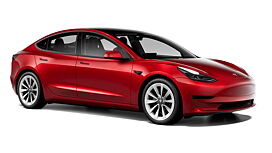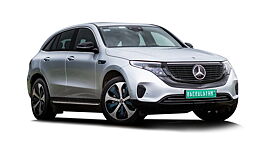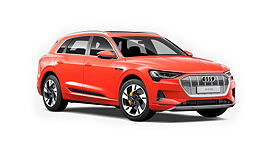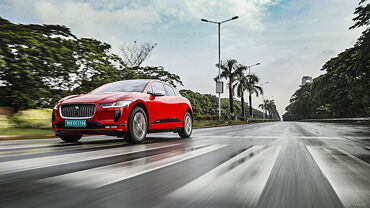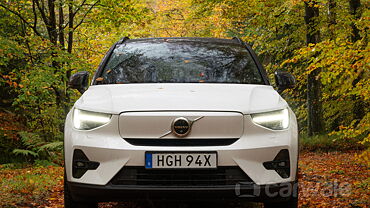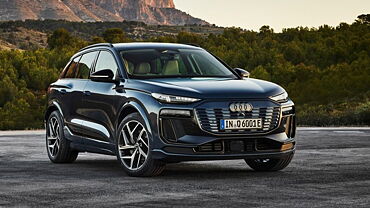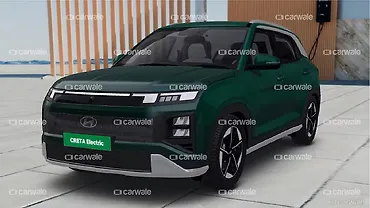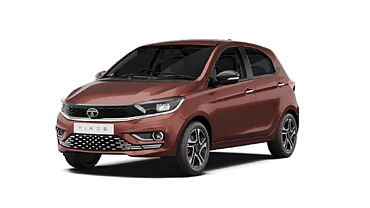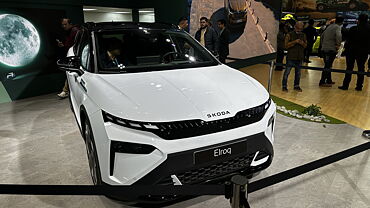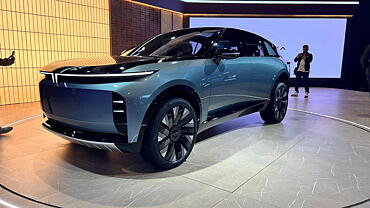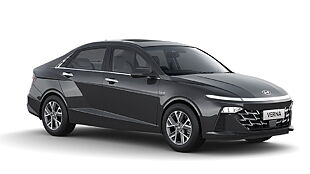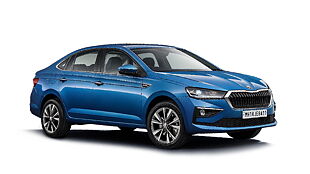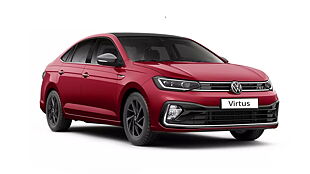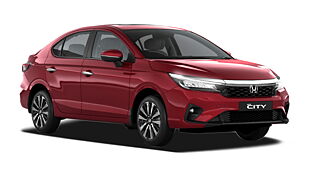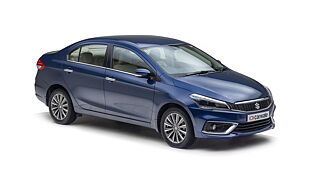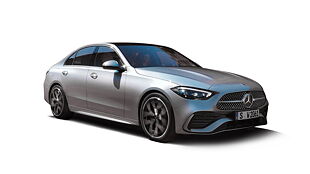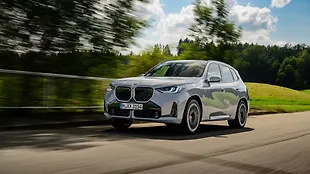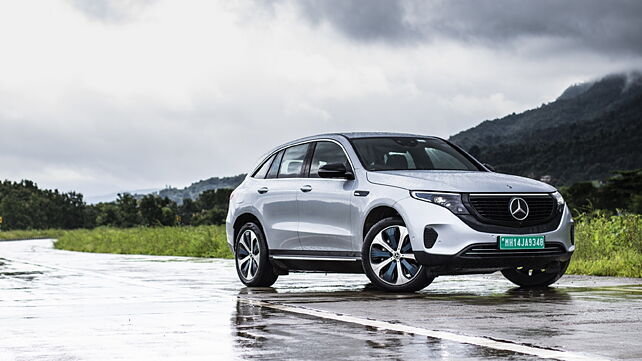
Electric technology is undoubtedly the future of mobility. The rising environmental concerns and unrealistic fuel prices have encouraged customers to opt for alternative fuel options. The luxury segment has already announced its plans to gradually upgrade its fleet with electric technology. The list of manufacturers that have already announced their electric plans includes – Volvo, Mercedes-Benz, Audi, BMW, and the JaguarLand Rover. Additionally, the pioneer of electric car mobility, Tesla has also announced its plans to set up a manufacturing unit in India.
India being a price-sensitive market, electric technology is relatively an expensive affair due to the higher cost of component imports. Therefore, so far the mainstream car manufacturers have refrained from offering more options with an electric powertrain. Currently, the most affordable electric compact SUV in the personal vehicle space is the Tata Nexon EV, which is available at a starting ex-showroom price of Rs 13.99 lakh. In the recent budget announcement, the government has once again emphasised the importance of localisation. If more components are locally produced, the low-cost advantage can be passed on to potential customers as well.
The extensive feature list and modern technology in the luxury car segment are much sought after by customers looking for options in the budget segment. The tried and tested electric drivetrain in the luxury segment will build confidence among potential customers in the budget segment. Moreover, infrastructure development and government benefits on electric vehicles will encourage potential buyers. Apart from charging facilities at the manufacturer’s service outlets, the government plans to have one e-charging kiosk across 69,000 petrol stations in India. Back in February 2020, the government had given a nod to NTPC, EESL, and REIL, to set up 2,600 EV charging stations.

Swedish car manufacturer, Volvo will go all offensive with electric product launches for the Indian market. In the past the company has introduced a plug-in hybrid option with a combustion engine, however, this time around the XC40 Recharge will be the first pure electric offering from the company. Bookings for the XC40 Recharge will commence in June 2021, followed by its deliveries in October 2021. The company plans to double its volumes in the coming years and by 2025 electric cars will constitute 80 per cent of annual sales. By 2030, Volvo will sell only fully electric cars and will phase out any car, in the portfolio, with an internal combustion engine and hybrids.

Mercedes-Benz introduced the EQC all-electric SUV in India in October 2020. Soon after launch, in November last year, the EQC received a new 11kW on-board charger. This time around, Mercedes-Benz has opened the second phase booking for the EQC. In the global market, the German luxury car manufacturer has announced its plans to launch 10 pure electric models in the product line-up by 2022, some of which include the EQE sedan, EQS sedan, EQE SUV, and an EQS SUV. Interestingly, the EQS SUV will be based on Mercedes’ first dedicated EV platform, known as Electric Vehicle Architecture (EVA), which shall also form the basis for future EQ siblings.

Audi India has recently teased its first fully electric vehicle, the e-tron. The vehicle is due for launch in the first half of 2021 and is a highly sought-after product in the Scandinavian market. To learn more about the Audi e-tron, click here. In the global market, Audi unveiled the e-tron GT and the RS e-tron GT. These four-door high-performance coupes will join the existing line-up comprising the 2021 e-tron and e-tron Sportback.

Jaguar Land Rover has upgraded 22 outlets in India with over 35 electric chargers to gear-up for the electric product launches in the days to come. The Jaguar I-Pace will be the company’s first all-electric SUV to be introduced in India. A total of 22 retail outlets across 19 cities are now EV-ready in terms of infrastructure, as well as sales and after-sales support. Under the ‘Reimagine’ electrification plans, Jaguar and Land Rover models are based on two separate architectures maintaining their unique personalities. By 2025, Jaguar is set to go pure electric for its entire product range. On the other hand, Land Rover will introduce its first electric model only by 2024. It will offer all its models in an all-electric form by the end of 2030. All Land Rovers will be underpinned by two architectures - Modular Longitudinal Architecture (MLA) and Electric Modular Architecture (EMA). A plug-in hybrid variant of the Land Rover Defender is on the cards and it is expected to be introduced in the months to come.

BMW has announced its plans to globally launch 13 new electric vehicle models by the end of 2030. The BMW i4 will be launched three months ahead of its schedule, while the flagship all-electric SUV, the iX will be offered in two guises – the xDrive 40 and xDrive 50. BMWs subsidiary, MINI will also go all-electric by 2030 and the last combustion engine will be built in 2025. The company has also highlighted that deliveries of fully electric models will grow by well over 50 per cent annually on average by 2025. Moreover, the fully electric models will account for at least 50 per cent of global deliveries by 2030.

The global leader in electric mobility, Tesla has registered itself in India by the name ‘Tesla India Motors and Energy Pvt Ltd’ with the Registrar of Companies, Bengaluru, Karnataka. The Model 3 will be the first Tesla badged sedan in India with an electric powertrain. This is the most affordable model in the company’s line-up. The plant might also be used in the production of other Tesla models for the global market.

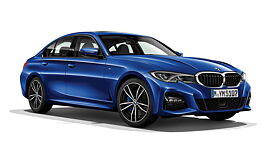
![MINI Cooper [2018-2024] Image MINI Cooper [2018-2024] Image](https://imgd.aeplcdn.com/272x153/n/cw/ec/34560/cooper-2018-2024-exterior-right-front-three-quarter-3.jpeg?isig=0&q=80)
![Land Rover Defender [2020-2021] Image Land Rover Defender [2020-2021] Image](https://imgd.aeplcdn.com/272x153/n/cw/ec/41970/landrover-defender-right-front-three-quarter1.jpeg?q=80)
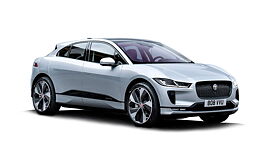
![Volvo XC40 Recharge [2022-2024] Image Volvo XC40 Recharge [2022-2024] Image](https://imgd.aeplcdn.com/272x153/n/cw/ec/51766/xc40-recharge-exterior-right-front-three-quarter-2.jpeg?isig=0&q=80)
